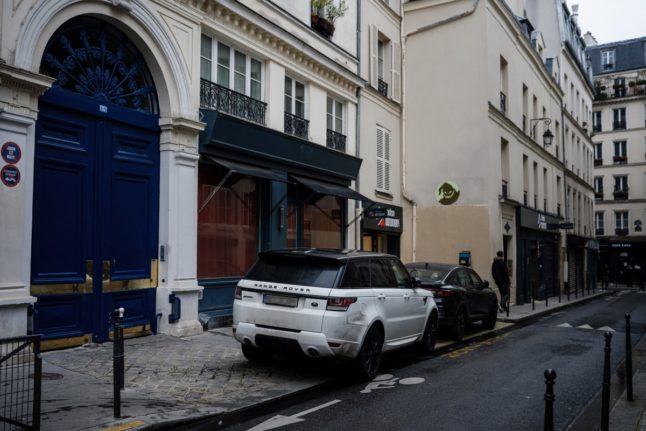Parisians voted 54.55 percent in favour of charging cars weighing 1.6 tonnes or more €18 per hour for parking in the city centre, or €12 further out.
But only 78,000, or 5.7 percent, of the 1.3 million eligible voters bothered to vote at the 39 voting stations set up around the French capital.
Paris mayor Anne Hidalgo, of Parti Socialiste, hailed a “clear choice of Parisians” in favour of a measure that is “good for our health and good for the planet”.
Fully electric cars will have to top two tonnes to be affected, while people living or working in Paris, taxi drivers, tradespeople, health workers and people with disabilities will all be exempt.
Hidalgo announced on Monday morning that the new parking charges will apply from September 1st.
“It’s an ecological issue, but it’s also a societal issue, and it’s about how cities need to evolve in a changing environment,” said Gregoire Marchal, a 43-year-old cinema distributor, after voting in favour of the measure at a polling station in Paris’s 10th district.
“I do have a car, but I think it’s great that we can ask ourselves the question and change our behaviour,” he added.
Not all voters were happy.
“I’m sick of all these diktaks from Mrs Hidalgo,” said Jeannine, 75, in the wealthier 8th district, where more of the cars appear to be SUVs.
Hidalgo herself voted at a school in the city’s 15th district a little before 6pm local time.
On Hidalgo’s watch, the capital city has pedestrianised many streets, including the banks of the river Seine, and built a network of cycle lanes in an effort to discourage driving and reduce harmful transport emissions.
Environmental group WWF has dubbed SUVs an “aberration”, saying they burn 15 percent more fuel than a classic coupe and cost more to build and purchase.
City hall has further pointed to safety concerns about taller, heavier SUVs, which it says are “twice as deadly for pedestrians as a standard car” in an accident.
The vehicles are also singled out for taking up more public space – whether on the road or while parked – than others.
Paris officials say the average car has put on 250 kilogrammes since 1990.
Hidalgo, whose city will this summer host the 2024 Olympics, has led a long-term drive to drastically reduce car use in the centre.
But drivers’ groups attacked the scheme, Yves Carra of Mobilite Club France dismissing the “SUV” classification as “a marketing term” that “means nothing”.
He argued that compact SUVs would not be covered by the measures, which would however hit family-sized coupes and estate cars.
Right-wing opposition figures on the Paris council say this imprecise targeting of the referendum “shows the extent of the manipulation by the city government”.
Even among fuel-burning cars, “a new, modern SUV… does not pollute more, or even pollutes less, than a small diesel vehicle built before 2011”, said drivers’ group 40 millions d’automobilistes.
France’s Environment Minister Christophe Béchu told broadcaster RTL the SUV surcharge amounted to “a kind of punitive environmentalism” – even if drivers should “opt for lighter vehicles”.
Hidalgo’s transport chief David Belliard, of the Green party, says around 10 percent of vehicles in Paris would be hit by the higher parking fees, which could bring in up to €35 million per year.
Paris’s anti-SUV push has not gone unnoticed elsewhere in France, with the Green party mayor in Lyon planning a three-tier parking fee for both residents and visitors from June.
The last city referendum in Paris, on banning hop-on, hop-off rental scooters from the capital’s streets, passed in an April 2023 vote – but only drew a turnout of seven percent.



 Please whitelist us to continue reading.
Please whitelist us to continue reading.
This referendum is a farce. Only 5 % bothered to get up to vote last Sunday.
Having said that, SUV have no place in Paris or in any city.
French drivers are already pretty dangerous on the road and these huge cars give them a feeling of superiority that does nothing to calm them.
It would have been better if more people had voted.
The funny bit is that the foreign press seems to like the result when here journalists can’t stop bitching about it claiming this is a basic right !!!